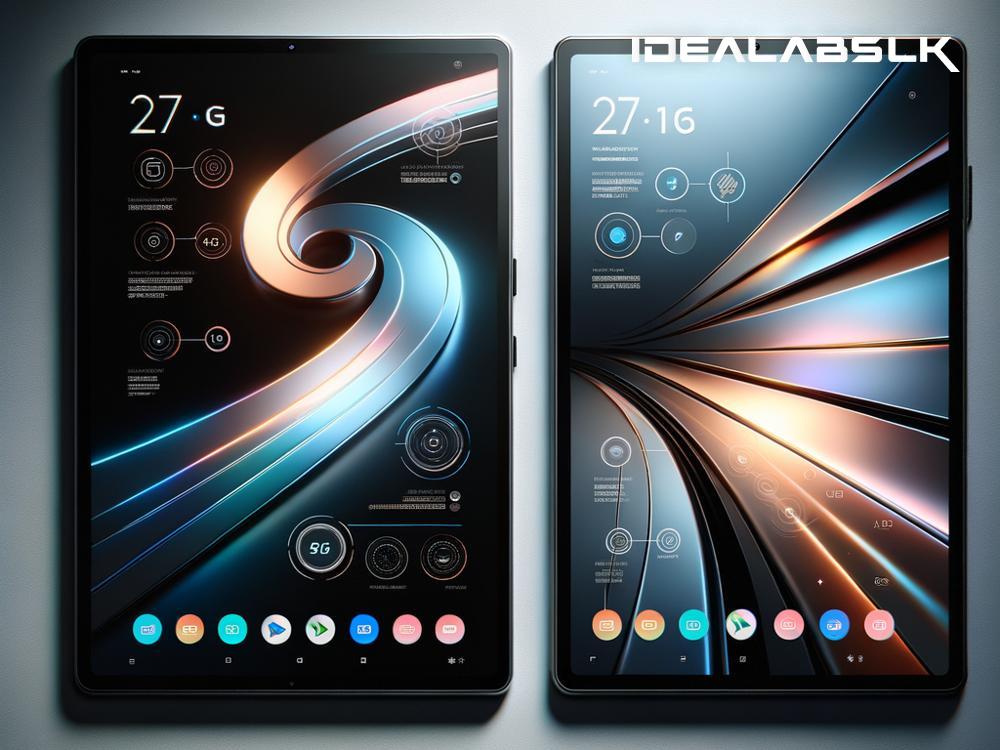How the Apple iPad Air Max Stacks Up Against the Samsung Galaxy Tab S11
When it comes to tablets, two tech giants never fail to mention their best contenders; Apple with its iPad Air Max and Samsung with the Galaxy Tab S11. Both of these tablets have been turning heads with their sleek designs, powerful performances, and cutting-edge features. But how do they truly stack up against each other? Let’s dive into a no-frills comparison to help you make an informed decision.
Design and Display - A Feast for the Eyes
Starting with the design, Apple has always boasted minimalism and elegance, and the iPad Air Max is no exception. It sports a slim profile with thin bezels, making it incredibly lightweight and easy to carry around. On the other hand, the Samsung Galaxy Tab S11 follows closely with a similarly sleek design and even thinner bezels, giving it a slightly more modern look.
When it comes to the display, both tablets are on par, offering vibrant colors and crisp visuals. The iPad Air Max comes with a 10.9-inch Liquid Retina display, which is great for streaming videos and browsing the web. Samsung’s Galaxy Tab S11, however, edges ahead slightly with its 11-inch Super AMOLED display, known for deeper blacks and more vivid colors. If you’re a stickler for screen quality, the Galaxy Tab S11 might just win your heart.
Performance and Hardware - The Power Within
Under the hood, both tablets pack quite the punch. The iPad Air Max is powered by Apple’s own A14 Bionic chip, providing smooth and efficient performance whether you’re gaming, streaming, or multitasking. In contrast, the Samsung Galaxy Tab S11 operates on the Qualcomm Snapdragon 865 Plus processor, which is no slouch either, offering responsive performance across different applications.
Both tablets offer various storage options, but Apple typically locks you into your initial choice since iPads don't support external storage. The Galaxy Tab S11, however, includes a microSD card slot, allowing users to expand storage as needed – a handy feature for those who love to download tons of apps and media.
Camera and Battery Life - Essentials That Matter
Cameras might not be the primary reason to buy a tablet, but it's worth noting that both these devices come equipped with impressive setups. The iPad Air Max boasts a 12MP rear camera and a 7MP front camera, delivering sharp images and smooth video calls. The Samsung Galaxy Tab S11 steps up the game with a 13MP rear camera and an 8MP front camera, providing slightly better resolution for photos and video chats.
Battery life is crucial for many, and here, both Apple and Samsung deliver competently. The iPad Air Max promises up to 10 hours of web surfing on Wi-Fi, watching videos, or listening to music. Similarly, the Samsung Galaxy Tab S11 offers around 11 hours of battery life under comparable usage, giving it a slight edge for those long flights or days without access to a charger.
Operating System and Ecosystem - Where Loyalties Lie
Choosing between an iPad and a Samsung tablet often boils down to the ecosystem you're invested in. The iPad Air Max runs on iPadOS, offering seamless integration with other Apple products like the iPhone, Mac, and Apple Watch. It’s fantastic for those already in the Apple ecosystem, making file sharing and device synchronization a breeze.
The Samsung Galaxy Tab S11, powered by Android, fits perfectly into the Google ecosystem, with easy integration with Google services and devices powered by Android. It’s great for users who prefer Google’s suite of apps and services or those who want more customization options available on Android.
Pricing - The Deciding Factor?
Finally, price is a significant factor for many. Both tablets come at a premium, with the iPad Air Max typically starting at a slightly higher price point than the Galaxy Tab S11 for the base model. However, prices vary based on storage options and cellular capabilities, so it’s worth comparing the specifics based on your needs.
The Verdict
Both the Apple iPad Air Max and the Samsung Galaxy Tab S11 are top-of-the-line tablets that won’t disappoint. Your choice might ultimately hinge on whether you prefer iOS or Android, and whether you value screen quality, camera resolution, or ecosystem integration more.
In the end, both tablets offer something for everyone, making it a tough but delightful decision for potential buyers. Remember to consider your specific needs and preferences before taking the plunge, and you’re sure to end up with a tablet that you’ll love.

